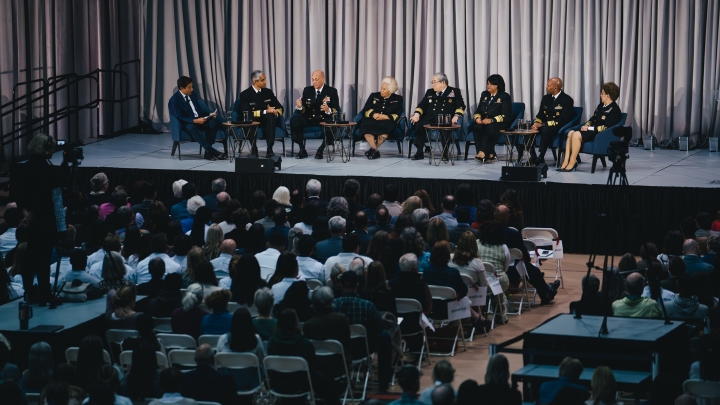Breakthroughs & Ah-ha Moments
If you had the chance to make a discovery that garners national attention, changes an industry, or helps to improve quality of life for many thousands of people—all stemming from research you launch as a first-year student—would you seize it? At Dartmouth, we provide you with the guidance, the tools, and in many cases, the funding to create breakthrough knowledge in fields ranging from anthropology to zoology and everything in between.
Robust Research Infrastructure
Not every project changes the world, but each project changes the student who pursues it. That's why our professors are so committed to mentoring undergraduates as researchers and coauthors—and why we've created such a robust infrastructure to support the curiosity, drive, and talent of Dartmouth undergraduates.
- Undergraduate Advising & Research (UGAR)
UGAR exists to create close collaborations between professors and students in one-on-one teaching and mentoring relationships outside the classroom. Through UGAR, you will acquire first-hand experience in an academic field of research while developing skills such as critical thinking, information processing, and effective communication.
- Undergraduate Research Grants
Dartmouth provides funding of up to $4,800 for 10 weeks of full-time leave research under the guidance of a Dartmouth faculty mentor.
- Dartmouth Early Research Access in the Sciences (ERAS)
Matches first-year students to faculty mentors for part-time paid research experiences.
- James O. Freedman Presidential Scholarships
Juniors perform hands-on research in part-time paid assistantships with a Dartmouth faculty mentor.
- Senior Fellowships
Gives you the ability to devote your entire senior year to a substantial independent project that pushes beyond the bounds of the existing Dartmouth curriculum.
- Sophomore and Junior Research Scholarships
Spend one to two terms working as a part-time paid research assistant with a Dartmouth faculty mentor.
- Mellon Mays Undergraduate Fellowships at Dartmouth
Supports sophomores and juniors from underrepresented minority groups and students who have demonstrated a commitment to the objectives of the Mellon Mays fellowships in their preparation for doctoral studies.
- Honors Thesis Grants
Receive up to $2,500 toward the cost of your senior honors thesis research.
- Historical Accountability Student Research Program
Research opportunities for Dartmouth undergraduates to explore primary sources in our collections related to issues of diversity and inclusion in Dartmouth history. -
Mini-grants
Cover conference registration fees up to $300 for an individual student or up to $1,000 to cover the costs of an on-campus event or program by a student organization.
Many of the undergraduates in [Assistant Professor of Chemistry Michael Ragusa's] lab are effectively doing graduate level projects, he says. "Because of the nature of what we do, there are no easy projects, so everything has a very high bar."







